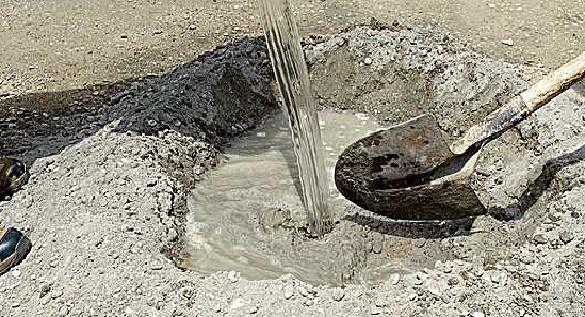The concept of water-to-cement ratio (w/c) of concrete is a universally fundamental concept and is considered as the oldest law in the concrete technology.
The water/cement ratio influences the durability properties of concrete in a significant way. Decreasing the w/c value would lead to a reduction in concrete porosity and accordingly, lower permeability and higher durability.
In general, the capillary pores (ranges in size 10 – 100 μm) depends on the w/c ratio with lower capillary porosity for lower w/c. Lowering w/c makes the cement particles closer to each other as in the following figure.

Moreover, it is well known that the strength of concrete is affected by the w/c ratio. In the next equation (Feret formula), decreasing w/c gives concrete with higher strength.
where k is a constant depending on the type of cement
Feret formula clearly shows the negative effects of water content on the compressive strength of the concrete.
Of course, the higher strength will develop more resistance to the internal stresses and limit the cracking in the concrete that might be generated through expansive reactions.


awesome piece